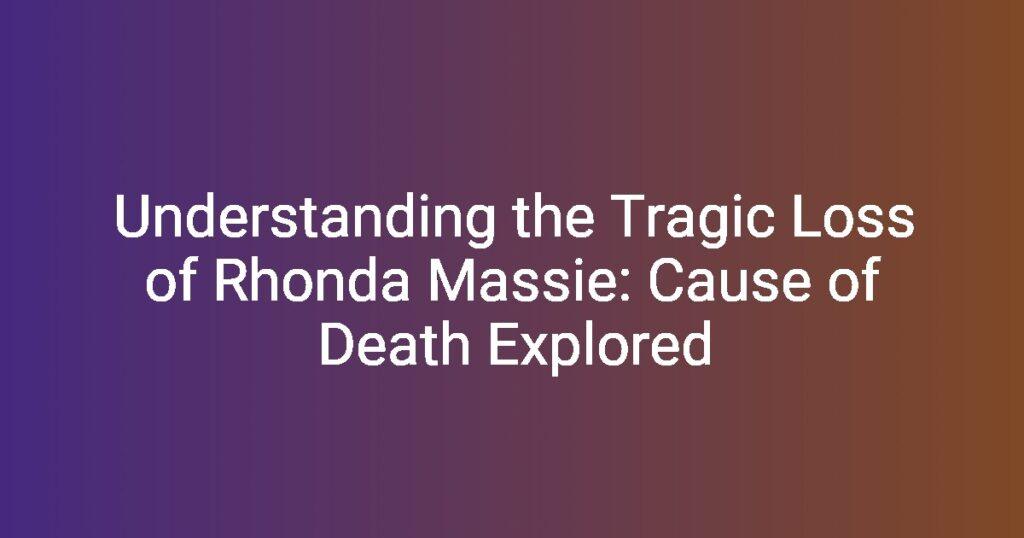The Gypsy Rose case has captivated the public’s attention, revealing a horrific story of abuse, deception, and tragedy within the confines of a seemingly normal household. This article delves deep into the gypsy rose crime scene to examine not only the surface details of the crime but also the psychological and legal implications that emerged from it. Through a careful investigation of the crime scene, the individuals involved, and the ensuing legal battles, we aim to shed light on the complex issues surrounding child abuse, mental health, and societal response to such cases.
Background Information
Who is Gypsy Rose Blanchard?
Gypsy Rose Blanchard was born on July 27, 1991, in Baton Rouge, Louisiana. From a young age, Gypsy was subjected to a disturbing reality: her mother, Dee Dee Blanchard, claimed that she was suffering from numerous medical conditions. These claims led to Gypsy living a life of constant medical treatment, surgeries, and medications, all under the guise of care. However, as revealed later in the investigations, this was part of a severe case of Munchausen syndrome by proxy perpetrated by Dee Dee, where she fabricated or induced health issues in her child for attention.
Gypsy grew up believing she had several ailments, including leukemia, muscular dystrophy, and various other conditions that resulted in her being wheelchair-bound. This complex and toxic environment shaped Gypsy’s understanding of her reality and contributed significantly to her eventual actions.
Overview of the Crime
The tragic turning point in this narrative occurred on June 14, 2015, when Dee Dee Blanchard was found murdered in her home in Springfield, Missouri. Gypsy and her boyfriend, Nick Godejohn, were arrested shortly after. Gypsy, who had conspired with Nick to kill her mother, was found to have played a key role in the crime that shocked the community. The substantial manipulation and brainwashing she experienced at the hands of her mother complicate her culpability in the eyes of the law.
The Crime Scene
Location Details
The crime took place in the Blanchard residence, a modest home that was a façade of domestic normalcy. The location played a significant role in the narrative—reflecting the extent of Dee Dee’s control over Gypsy and the ruse maintained for years. A once safe haven for Gypsy was marked by neglect and manipulation, housing the disturbing truths behind the mother-daughter relationship.
Evidence at the Scene
Key evidence collected from the gypsy rose crime scene included the murder weapon—a knife used by Nick Godejohn. Blood evidence revealed the intensity of the crime and led to the retrieval of other personal effects belonging to Dee Dee. Forensic investigators meticulously analyzed the scene to build a clearer picture of what transpired that fateful night.
The crime scene analysis also highlighted how critical forensic evidence is in understanding the dynamics of violent crimes, especially those involving deep psychological issues.
Law Enforcement Response
The police were alerted to the situation shortly after the crime was committed. A detailed timeline was established, showing the swift response from law enforcement. Initial investigations involved interviewing Gypsy and Nick, both of whom provided crucial insights into the events leading up to the murder. Various items were collected from the crime scene for further analysis, including digital evidence from Gypsy’s phone that demonstrated her intentions and plans.
Psychological Aspects of the Crime
Munchausen Syndrome by Proxy
Understanding the background of Munchausen syndrome by proxy is essential to grasping the full scope of the gypsy rose crime scene narrative. This complex psychological condition involves a caregiver (in this case, Dee Dee) who seeks attention and sympathy by inducing or fabricating illness in another person. Dee Dee’s behaviors were emblematic of this disorder, as she constantly presented Gypsy as gravely ill to garner support and sympathy from the community.
The impact on Gypsy Rose’s mental state was profound, as she internalized her mother’s lies and became trapped in a world where her very identity was manipulated and controlled.
Gypsy’s Justifications for the Crime
Gypsy’s motives for participating in the murder of her mother are multi-faceted. In interviews following the crime, Gypsy expressed feelings of entrapment and desperation, highlighting a growing need for autonomy and freedom. Her statements revealed a woman who was both a victim and an actor in a series of tragic events.
Moreover, external relationships, particularly with Nick, played a significant role in her decision-making processes. They shared a connection that fueled Gypsy’s willingness to act against Dee Dee, seeing it as a pathway to escape the suffocating control her mother held over her life.
Legal Proceedings
Arrest and Charges
Following the murder, Gypsy Rose and Nick Godejohn faced immediate legal repercussions. Gypsy was arrested on June 16, 2015, along with Nick, who was apprehended shortly thereafter. The charges against them included first-degree murder and conspiracy to commit murder, which carried significant legal weight and scrutiny.
Court Trials
Gypsy’s trial received considerable media attention, highlighting her unique defense strategy centered on the psychological and emotional abuse she experienced throughout her life. Her legal team argued for leniency, presenting her as a victim of her circumstances rather than a cold-blooded criminal. Ultimately, she was sentenced to 10 years in prison.
In contrast, Nick Godejohn faced a more traditional legal process, where he was portrayed as the one who physically committed the act. His trial resulted in a different outcome, with a conviction that carried a longer sentence.
Public Reaction and Media Coverage
Impact on Social Media
The Gypsy Rose case quickly gained traction on social media platforms, where it sparked discussions about child abuse, mental illness, and the justice system. Public reactions varied widely, with many expressing sympathy for Gypsy while others debated the morality of her actions. The sensationalization of the case online contributed significantly to the public’s perception, as narratives evolved and were shaped through discussions and shared stories.
Documentaries and Films
Numerous documentaries and dramatizations have emerged surrounding the Gypsy Rose case, offering various perspectives on the crime and its implications. Notable productions include the Hulu series “The Act,” which dramatizes Gypsy’s life and the events leading to the crime, as well as various documentary pieces that explore the psychological aspects of Munchausen syndrome by proxy. These portrayals emphasize the complexity of the gypsy rose crime scene and offer insights into the underlying issues of abuse and manipulation.
Implications of the Case
Awareness of Child Abuse
One of the significant outcomes of the Gypsy Rose case is the heightened awareness regarding child abuse and issues related to Munchausen syndrome by proxy. The case has spurred discussions among child welfare advocates and psychological experts about the unique vulnerabilities faced by children in similar situations. Additionally, increased scrutiny on caregiving roles and monitoring systems has emerged as a response to prevent future occurrences of such abuses.
Legal and Social Reforms
In the wake of the Gypsy Rose case, advocates have pushed for legal reforms focused on better protecting children with caregivers who may be suffering from psychological disorders. There is a growing recognition of the need to enhance training for medical professionals, teachers, and social workers to identify potential signs of abuse and intervene effectively. Moreover, the role of mental health services in providing support for victims and vulnerable populations has garnered attention as essential for preventing future tragedies.
Conclusion
Through this exploration of the gypsy rose crime scene, we uncover a tapestry of abuse, psychological manipulation, and ultimately, a desperate quest for freedom. As society grapples with the complexities of mental health and child protection, the lessons drawn from Gypsy Rose’s story remain poignant. The ongoing discourse on child welfare and systemic reform highlights an urgent need for vigilance and compassion in addressing similar cases of abuse.
References
| Key Points of the Gypsy Rose Case | Details |
|---|---|
| Date of Crime | June 14, 2015 |
| Primary Individuals Involved | Gypsy Rose Blanchard, Dee Dee Blanchard, Nick Godejohn |
| Murder Weapon | Knife |
| Initial Charges | First-degree murder, conspiracy to commit murder |
| Gypsy’s Sentencing | 10 years in prison |
| Nick’s Sentencing | Life in prison |
FAQ
1. What led Gypsy Rose to commit the crime?
Gypsy was motivated by a desire to escape her abusive environment and to gain independence from her mother, Dee Dee.
2. What is Munchausen syndrome by proxy?
It is a psychological disorder where a caregiver fabricates or induces illness in another person for attention and sympathy.
3. How did the public react to the Gypsy Rose case?
The case generated mixed reactions, with many sympathizing with Gypsy while others debated the ethical implications of her actions.
4. What are the legal ramifications for Gypsy and Nick?
Gypsy received a 10-year sentence, while Nick was sentenced to life in prison for his role in the murder.
5. Did Gypsy Rose face any psychological evaluations during the trial?
Yes, psychological evaluations were a significant part of Gypsy’s defense, highlighting the abuse she suffered.
6. Has the Gypsy Rose case led to any legal reforms?
Yes, the case has spurred discussions about improving child protection laws and mental health services.
7. Are there any films or documentaries about the case?
Yes, documentaries and dramatizations like “The Act” provide insight into Gypsy’s life and the events surrounding the crime.
8. What is the main focus of society regarding this case now?
The focus is on raising awareness about child abuse, advocating for victims, and ensuring better protections against similar situations.
9. How has social media influenced the narrative of the Gypsy Rose case?
Social media has played a crucial role in shaping public opinion and discussions about the case, often sensationalizing elements of the story.
10. What can be done to prevent similar cases in the future?
Increased training for professionals and more robust monitoring systems can help identify and prevent cases of abuse like that experienced by Gypsy Rose.




